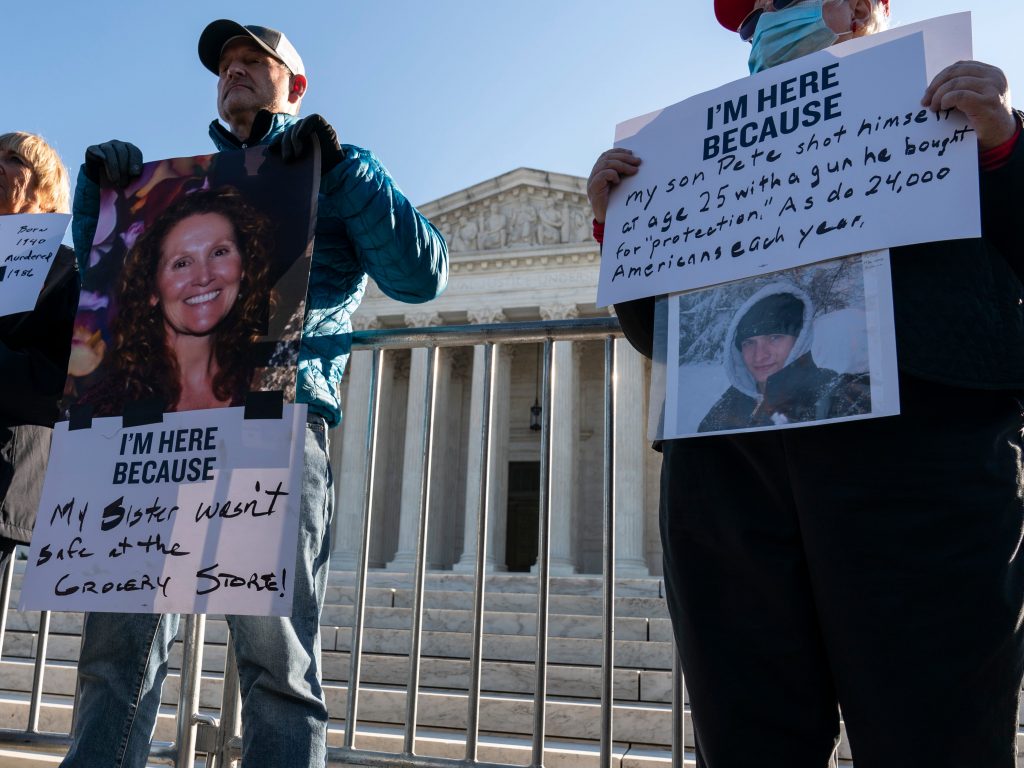- A bipartisan group of senators on Sunday announced a tentative agreement on gun reform legislation.
- According to NBC News, the framework will include funding for mental health and school security.
- The gun reform framework comes after high-profile mass shootings in Uvalde, Texas, and Buffalo.
After weeks of discussions, a bipartisan group of Senate negotiators on Sunday released an outline for gun reform legislation in the wake of deadly mass shootings in Buffalo, NY, and Uvalde, Texas, according to NBC News.
The prospective deal represents a major breakthrough in gun reform, as it includes incentives for states to create red flag laws, which generally allow police to temporarily seize guns from individuals who are a threat to themselves or others. The agreement also increases funding for mental health services and provides additional money to be used to strengthen school security.
The agreement also would allow the availability of juvenile records of gun purchases who are under 21 years old when they are subject to background checks.
Democratic Sen. Chris Murphy of Connecticut, one of the most prominent gun control advocates in Congress, and Republican Sen. John Cornyn of Texas, a conservative lawmaker who has spoken about needing to ensure that Second Amendment rights are not infringed upon, have been the lead negotiators of the 20-member Senate group during their lengthy talks.
"Today, we are announcing a commonsense, bipartisan proposal to protect America's children, keep our schools safe, and reduce the threat of violence across our country," the group, led by Murphy and Cornyn, said in a statement. "Families are scared, and it is our duty to come together and get something done that will help restore their sense of safety and security in their communities."
According to NBC News, a final piece of legislation has not yet been written.
The proposal is less aggressive than what most Democrats sought, as it does not include an assault weapons ban, but the agreement might allow a potential bill to pass the upper chamber with at least 60 votes and withstand a legislative filibuster.
Democrats enacted a federal assault weapons ban in 1994, but the legislation expired in 2004 — and Republicans have argued that such a restriction would not halt the spate of mass shootings that have become an epidemic throughout the country.
President Joe Biden on Sunday heralded the agreement despite his hopes for more sweeping legislation.
"I want to thank Senator Chris Murphy and the members of his bipartisan group — especially Senators Cornyn, [Kyrsten] Sinema, and [Tom] Tillis — for their tireless work to produce this proposal," he said in a statement. "Obviously, it does not do everything that I think is needed, but it reflects important steps in the right direction, and would be the most significant gun safety legislation to pass Congress in decades."
He emphasized: "With bipartisan support, there are no excuses for delay, and no reason why it should not quickly move through the Senate and the House. Each day that passes, more children are killed in this country: the sooner it comes to my desk, the sooner I can sign it, and the sooner we can use these measures to save lives."
